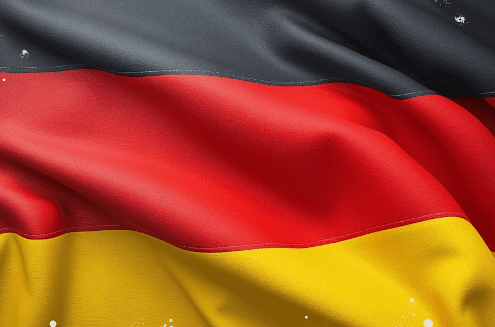In a surprising turn of events, Germany’s “traffic light” coalition government – a political alliance of the Social Democratic Party (SPD), Free Democratic Party (FDP), and the Greens – has disbanded following the dismissal of Finance Minister Christian Lindner by Chancellor Olaf Scholz. This decision effectively ends the coalition that has governed Germany since 2021, leading the country into political uncertainty and potential early elections.
Background: The “Traffic Light” Coalition and Its Challenges
Named after the colors of the three parties (red for SPD, yellow for FDP, and green for the Greens), the traffic light coalition was formed with the promise of ushering in a new era of progressive policies in Germany. The coalition aimed to address climate change, economic reform, and digital transformation while balancing the diverse ideologies of each party.
However, tensions between the SPD, FDP, and the Greens have been mounting over the past two years, particularly regarding economic policy, climate initiatives, and defense spending. The coalition’s three-way balance has proven challenging, as each party has a distinct stance on these key issues. While the SPD pushed for increased social welfare spending, the FDP prioritized fiscal discipline and limited state intervention. Meanwhile, the Greens were focused on ambitious climate goals, creating a friction point with the FDP’s emphasis on free-market principles.
The Catalyst: Scholz’s Dismissal of Lindner
Chancellor Olaf Scholz’s decision to dismiss Christian Lindner, leader of the FDP and Finance Minister, appears to have been the breaking point. The move followed months of disagreement between Lindner and other coalition leaders, particularly on issues related to Germany’s budget deficit and proposed tax reforms. Lindner’s insistence on fiscal restraint and rejection of increased borrowing were at odds with the SPD and Green Party’s preference for greater investment in social programs and environmental initiatives.
Reports suggest that Scholz’s dismissal of Lindner was driven by the SPD’s frustration with what they viewed as the FDP’s obstructionist approach to policies aimed at boosting Germany’s post-pandemic recovery. In a press conference, Scholz defended his decision, stating, “Germany needs a government united in purpose. We cannot afford to let internal divisions prevent us from moving forward.”
Reactions from German Political Leaders and Citizens
The collapse of the traffic light coalition has sent shockwaves through Germany’s political landscape. Annalena Baerbock, co-leader of the Green Party and Foreign Minister, expressed disappointment, saying, “This coalition was a chance to take Germany into the future. We will continue to fight for the climate and social justice, regardless of the coalition’s status.”
Meanwhile, Christian Lindner responded with a statement calling Scholz’s actions “short-sighted,” suggesting that the SPD and Greens were “unwilling to make the hard choices necessary for a stable and sustainable economy.” Lindner’s supporters in the FDP voiced concerns about potential tax hikes and an increased national debt, expressing fears that fiscal discipline could be undermined.
Reactions among German citizens have been mixed. Some see the coalition’s collapse as an inevitable outcome of its ideological differences, while others are disappointed by the lack of political stability. In Berlin, protests have erupted as people express both frustration with the government’s inability to maintain cohesion and support for their respective parties’ agendas.
Potential Outcomes and Implications for German Politics
The disbanding of the coalition has thrown Germany into political uncertainty. Several possible outcomes are now being discussed by political analysts:
- Early Elections: If no new coalition can be formed, Germany may head to early elections. This scenario could favor opposition parties, such as the conservative Christian Democratic Union (CDU) and the far-right Alternative for Germany (AfD), both of which have gained popularity due to public dissatisfaction with the coalition’s performance.
- Minority Government: Scholz’s SPD could attempt to govern as a minority government, relying on the support of opposition members on a case-by-case basis. While this could allow the SPD to advance some of its policies, it would make passing significant legislation difficult, as it would require negotiating with multiple parties.
- New Coalition Talks: Another possibility is for the SPD to pursue a new coalition agreement, possibly with the CDU. While this would involve significant compromises, it might provide the stability needed to govern effectively.
Key Issues at Stake for Germany’s Future
The breakdown of the coalition raises questions about Germany’s future on several fronts:
- Economic Policy: The SPD and Greens may seek to advance their social and environmental policies without the FDP’s resistance. However, without Lindner’s fiscal restraint, concerns about increased borrowing and potential tax hikes loom large. Germany’s economic policy could shift significantly if the SPD aligns with a more left-leaning or centrist coalition partner.
- Climate Goals: The Greens may attempt to push for more aggressive climate policies, potentially accelerating the country’s shift to renewable energy. However, these efforts may face opposition from more conservative members of the Bundestag who prioritize energy security and affordability.
- European Union Relations: Germany’s approach to EU policy may also shift, as the SPD and Greens favor closer EU integration and stronger climate commitments. If a new coalition emerges, Germany’s role in EU negotiations, especially regarding energy and defense, could evolve accordingly.
Conclusion: Uncertainty and Opportunities Ahead
The collapse of Germany’s traffic light coalition is a significant event with broad implications for both German and European politics. While the dissolution of the coalition highlights the difficulty of governing with diverse ideologies, it also presents an opportunity for German politicians to reevaluate priorities and seek new alliances. As Germany navigates this period of uncertainty, the choices made in the coming weeks and months will shape the country’s political and economic landscape for years to come.
As the situation unfolds, the eyes of the world remain on Germany, a nation whose stability and leadership are crucial to Europe. Whether through early elections, a new coalition, or a minority government, Germany’s next steps will be pivotal in defining the future of Europe’s largest economy.





